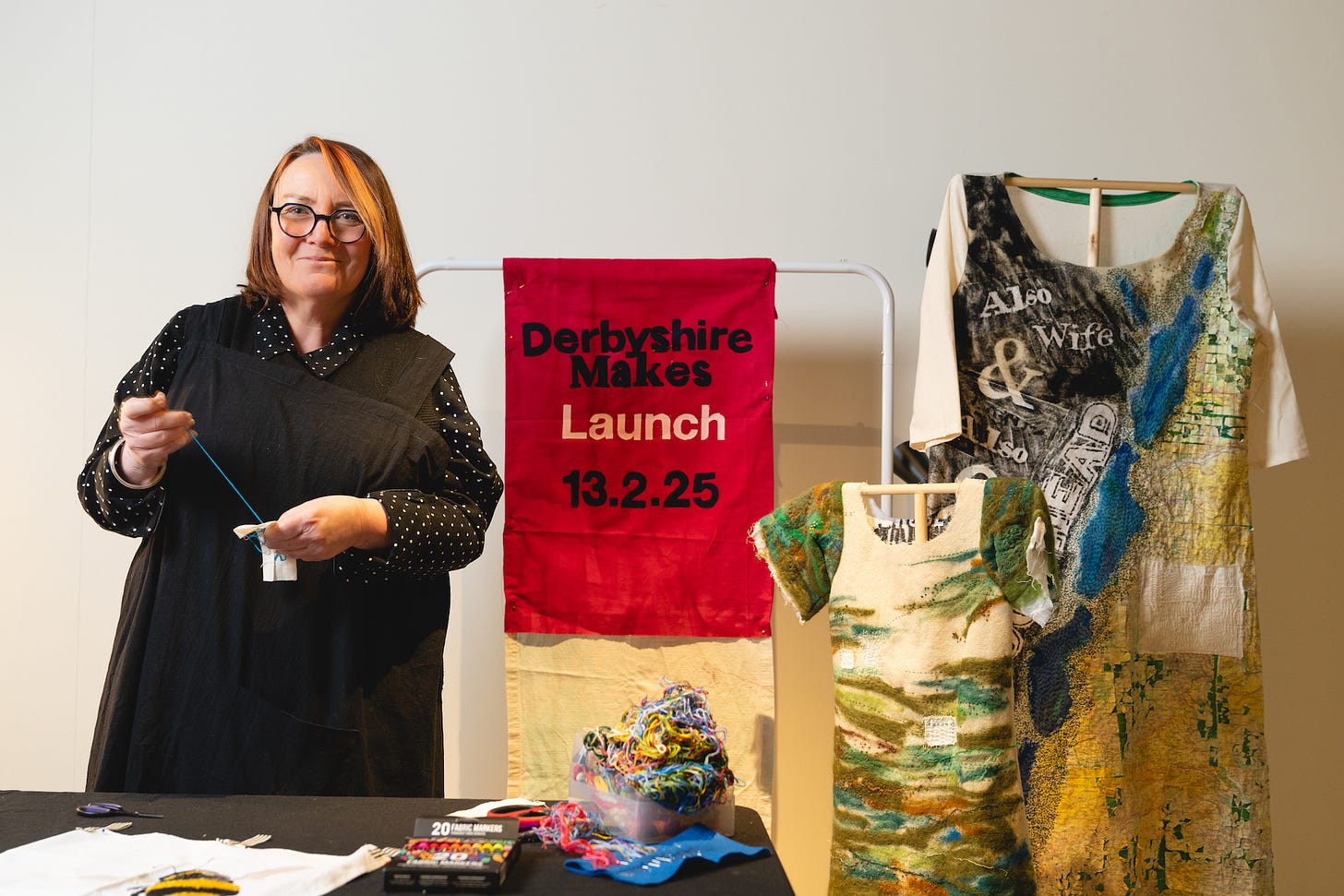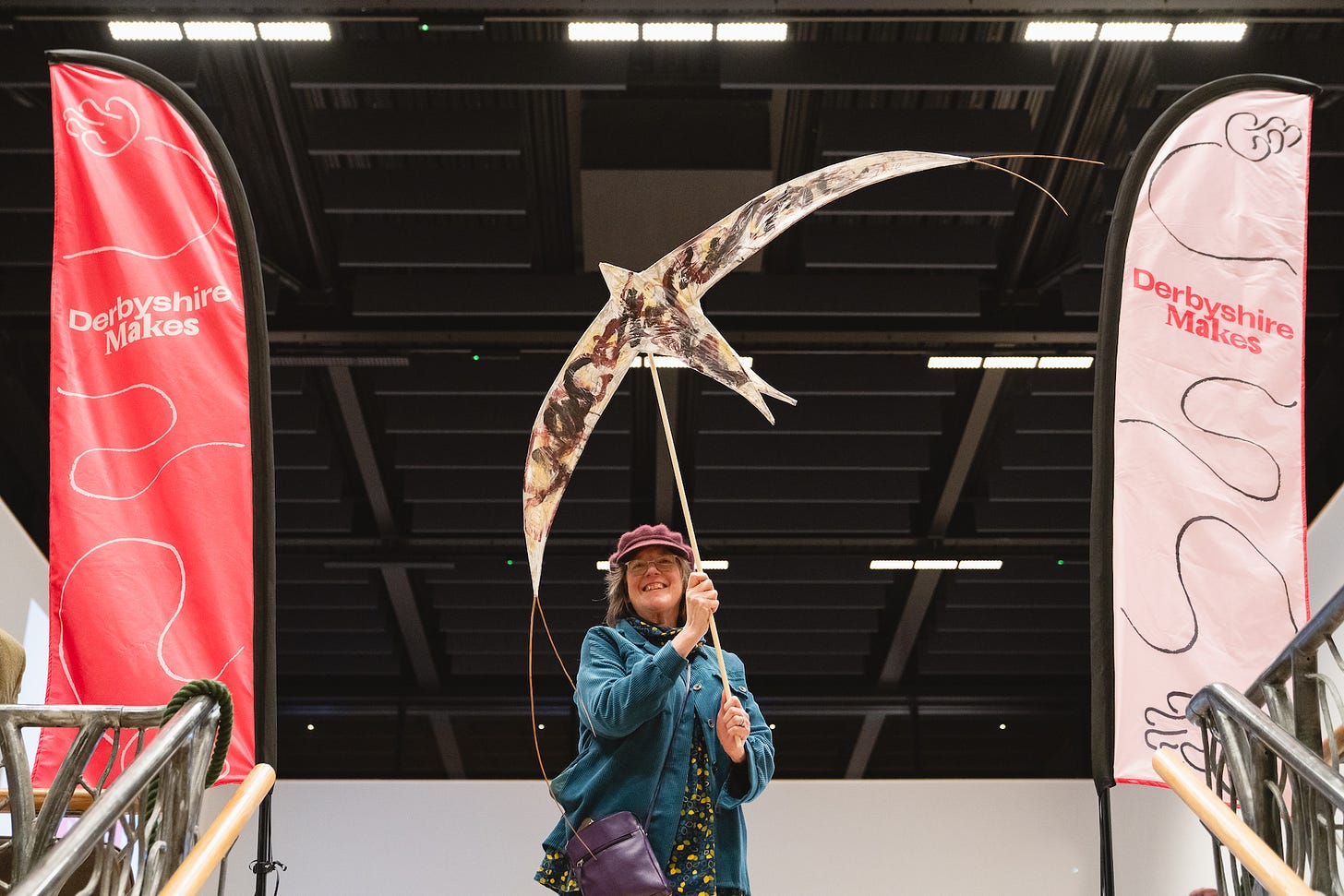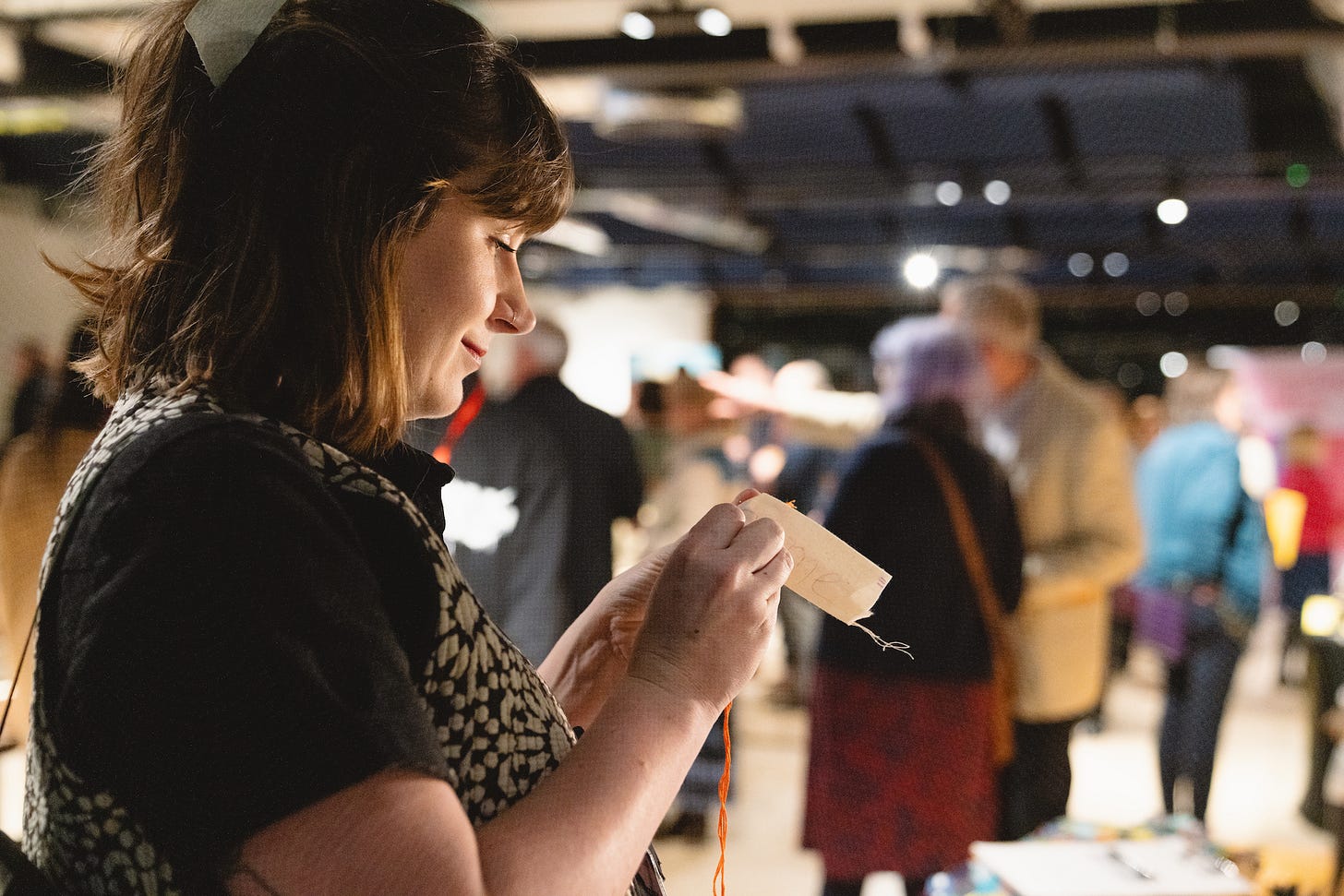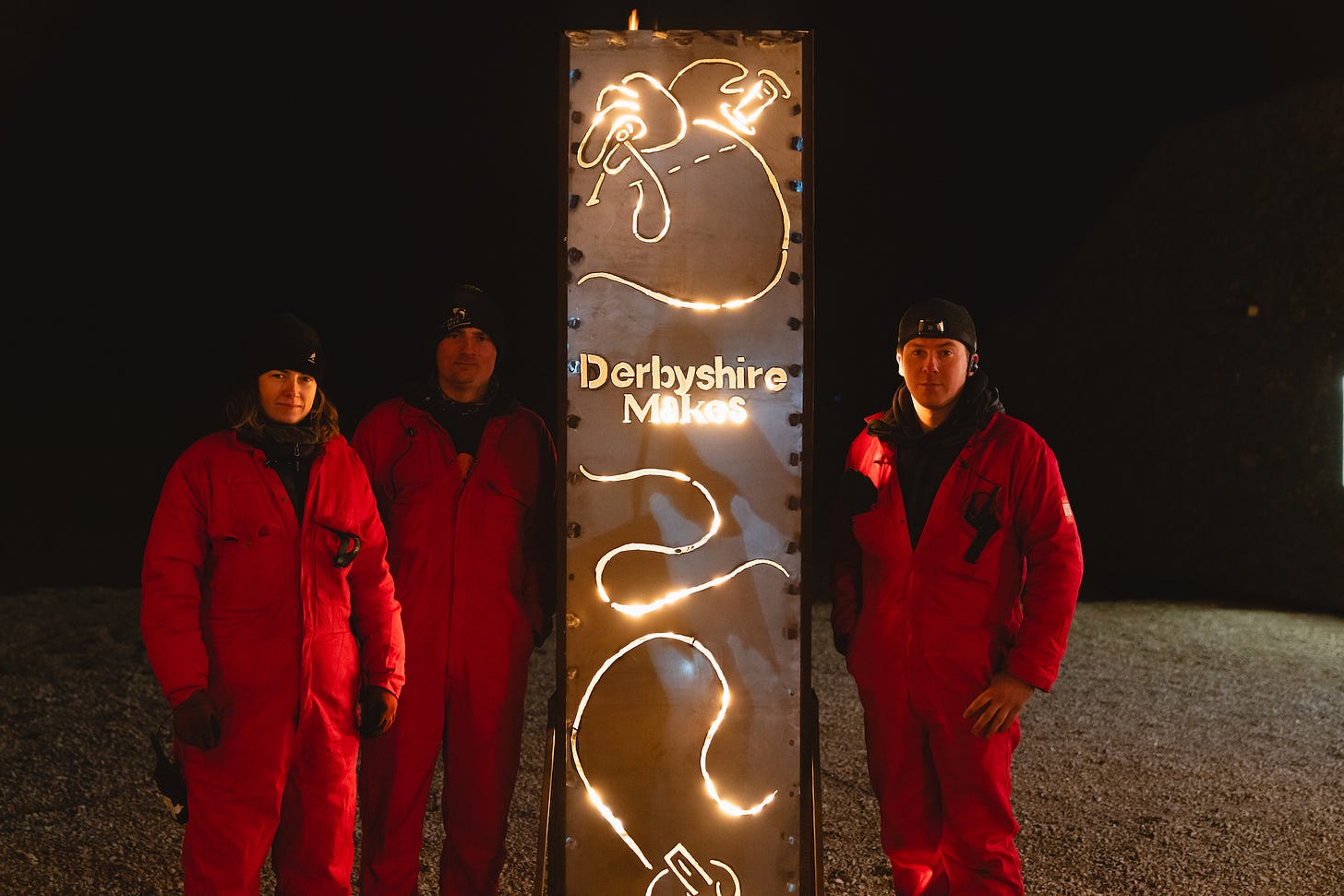What does it take to run a financially sustainable festival nowadays?
And what are the implications for the festivals sector long-term in such challenging times?
Welcome to the eleventh edition of my monthly newsletter, all about arts festivals. A very warm hello to my new subscribers and to all my existing subscribers.
Every month more festivals are being cancelled due to rising costs and the inability to secure the investment required through fundraising in an increasingly competitive landscape (see below). So, are the current business models for annual and biennial arts festivals becoming financially unsustainable? In a world where funding of the arts has reduced significantly over the last ten plus years, what does that mean for festivals, some of whom are already hanging on by a thread or taking a pause, hoping to return in the future?
Last week’s announcement in England of more than £270 million investment to ‘fix the foundations of our arts venues, museums, libraries and heritage sector in communities across the country’ by Lisa Nandy, Secretary of State for the Department for Culture, Media and Sport in the Jennie Lee Lecture – Arts for Everyone, is of course extremely welcome.1 It was also a welcome change to hear the shift in the national narrative around the importance of arts, culture and heritage to our society.
After a long and tortuous process, additional funding has also recently been announced by Creative Scotland to support arts organisations already in their Multi-Year funding portfolio, and a Development Fund for thirteen others with a view to them joining the portfolio in the next round. The Welsh Government also announced an uplift in funding for the nation’s cultural sector and an increase in capital funding. Whilst in Northern Ireland, creatives are still calling for arts funding to be increased in the upcoming budget.
However, it’s disappointing once again, to see that arts organisations, especially in England, that do not run public-facing venues will receive no benefit from this additional investment - what about theatre, outdoor arts and dance companies, orchestras, artists and creative practitioners, and of course festivals?
For independent festivals, especially those that are not based within an existing organisation, such as an arts or heritage venue, university, library, cinema or concert hall, it is becoming increasingly difficult to make business models stack up financially. Many independent festivals receive no regular year-round funding and are therefore reliant on project funding which has become increasingly competitive and difficult to secure. For those festivals that are in receipt of regular public sector investment, they are also now expected to run year-round programmes as well as deliver an annual or biennial festival. These worthwhile programmes, often education and learning focused do not generate revenues. And as a sector we’ve become victims of our own success and PR in that festivals are expected to be ‘bigger and better’ than the last festival; yet festivals are operating on decreasing resources – money and people. And then there is the human toll. Just this month, the UK’s performing arts union Bectu stated that increasing financial pressures on some UK festivals are being linked to concerns about working conditions for crew members.
I’ve seen many festivals over the years move away from the festival format to becoming more financially sustainable year-round cultural organisations, including FutureEverything, Abandon Normal Devices, York Mediale, WoW Foundation (Women of the World), to name a few. Even Manchester International Festival is now part of Factory International including the flagship venue, Aviva Studios.
But it’s not just about the money. We’re also seeing increasing political interventions in terms of artist selections in festivals and the backlash against some major corporate sponsorship of festivals due to political affiliations and investments, whether that’s in fossil fuels and/or countries at war. The speed with which the new USA government is dismantling Diversity, Equality and Inclusion programmes, sacking public sector employees including in major arts organisations, and ramping up the extremes in public discourse is shocking.
As I’ve said before, artists and the arts sector are so often the canaries in the coalmine. Festivals should be safe spaces where artists and audiences can take risks, challenge the status quo, explore new ideas, bring to the fore underrepresented voices and stories, and come together to shine a light on the important issues of our times - actual free speech, not pretend free speech absolutism masking genuine ideas and debate. If artists are not going to be able to do that in what has always been the most powerful and influential democratic nation in the world, what does that say for the rest of us?
Here in the UK, there are some green shoots we need to nurture in terms of thinking differently about festivals, particularly around the power of the collective, collaborative working and the progression from production to co-production and co-design.
Earlier this month, the Mayor of North East England and the North East Combined Authority gathered together representatives from the cultural, creative, events and tourism sectors for a roundtable workshop titled: Beyond the Horizon: Designing the Collective Future of Festivals and Events in the North East, hosted at The Glasshouse International Centre for Music in Gateshead.
Herefordshire Council has commissioned a Cultural Strategy, a Destination Management Plan and a Festival and Events Strategy (the latter produced by CTConsults). Joining this planning together through the Herefordshire Cultural Partnership, supported by councils, Business Improvement Districts and Arts Council England is key to the successful delivery of these plans.
Nine of the UK’s leading book festivals who were previously sponsored by Baillie Gifford, including Edinburgh International Book Festival, Cheltenham Literature Festival and Hay Festival have come together to create a new alliance for discussion and collaboration.2 What’s interesting is that this collaboration has been made possible due to a donation from independent publishers Canongate. Seven of the nine festivals have also joined Cheltenham and Stratford festivals as members of the British Arts Festivals Association too.
And the Association of Independent Festivals (AIF) is working closely with suppliers that directly benefit from festival business to support the sector. NOQ, a company that provides a centralised platform for data collection and analysis for outdoor commercial festivals is demonstrating its commitment to supporting the sector by giving the Association of Independent Festivals £1,000 every time an independent festival signs up to its service. The AIF has also partnered with Citizen Ticket, another ticketing software provider to create the Fallow Festival Fund to help struggling festivals bounce back. At the recent AIF Congress, its Chief Executive John Rostron called for the Department for Culture, Media and Sport to begin a State of Play inquiry into the future of UK festivals.
The Grassroots Rising Festival is a new ‘festival of festivals’ uniting several outdoor music festivals on one site over one weekend in June next year. The idea is to support independent festival operators who cannot proceed alone due to financial constraints. The festival will operate as a community benefit society.
I can’t help feeling that the festivals sector, those in receipt of public sector investment and the commercial festivals sector, need a stronger collective national voice and crucially to be in ‘the room where it happens’.3
UK News
I’ve been busy this month working with colleagues to launch Derbyshire Makes, a three-year cultural programme including a free, annual festival taking place across six towns celebrating making in all its forms, and kicking off on Friday 28 March in Chesterfield.
Woven 2025, West Yorkshire’s biennial festival celebrating innovation in textiles through a sustainability and community lens, has secured Arts Council England funding to enhance its community activity in Kirklees.
Norfolk and Norwich Festival has announced this year’s programme.
Newcastle’s Live Theatre launches the new Unearthed festival in May to celebrate North East creativity and ‘bold new theatre for a better world’. The theatre will also host the Trans Performance Now festival in June.
For outdoor festivals and events, Without Walls has an open call out to join their Creative Development Network, deadline Thursday 13 March.
Hay Festival is inviting submissions for The Platform - an opportunity for young creatives to showcase and share their work at the festival this year.
Durham’s light art biennial Lumiere has opened its national commissioning scheme, BRILLIANT, and is looking to support artists to create new work for this year’s festival.
The British Council has announced the 13 successful applicants to this year’s Biennials Connect Programme, offering grants to UK and international biennials and festivals to showcase contemporary visual arts. Great to see one of my former clients, Liverpool Biennial is one of the recipients.
More British Council news with this year’s UK/Poland Season. Some of the highlights include a new collaboration between Abandon Normal Devices (AND) and Poland’s contemporary music festival Unsound, British Ceramics Biennial (another former client of mine) and The Museum of Ceramics in Bolesławiec, Bradford UK City of Culture 2025 and Foundation for Visual Education, and the 23rd KINOTEKA Polish Film Festival launching next month.
Turner Prize-winning artist Lubaina Himid has been chosen to represent the UK at the 2026 Venice Biennale.
Manchester’s Quarantine is working with Chemnitz 2025: European Capital of Culture on a three-part project entitled The Questions with performance, conversation and cultural exchange happening in both cities, which have been twinned since 1983.
Beach of Dreams, the nationwide festival celebrating and reflecting on the future of our coastlines is holding virtual roundtables in March in the build-up to the May festival.
The outgoing Chief Executive Shona McCarthy of Edinburgh Festival Fringe Society called for the government to treat the festival with the same importance as the Olympic Games. Just after my last newsletter went live, Tony Lankester was announced as the new Chief Executive. And earlier this month, EdFringe received the keys to their new permanent home, the former Southbridge Community Resource Centre. The Famous Spiegeltent returns to EdFringe with a six week season of cabaret show La Clique (I’ve had many fun nights in that grand tent). Charity Scot-ART is taking over the management of the troubled Fringe venue Summerhall. Finally, will new changes to Edinburgh’s accommodation letting rules ease accommodation pressures during the summer festival season?
Glasgow International is looking for a new Festival Director, and Edinburgh International Festival is looking for a Production Administrator.
Shakespeare North Playhouse has a callout for performers to preview their Edinburgh Festival Fringe shows at their Heading North Fringe Festival in July.
New festivals include a comedy festival in Droitwich Spa, Worcestershire launched in memory of comedian and actor Rik Mayall in his home town in May/June; Balloons and Beats is touring to outdoor locations in Manchester, Nottingham, Wrexham, Chepstow and Dorset this summer; and the Leeds Storytelling Festival, designed for families and children is running until 8 March.
Brighton’s Oska Bright Film Festival, the world’s leading festival for films made by or featuring people with learning disabilities or autism, has moved its dates forward a year to March 2026, due to venue availability.
Liverpool’s Africa Oyé is taking a break from delivering a festival this year due to increased costs but will return in June 2026.
The Latin Connections Film Festival in Scotland is running a crowdfunder to fundraise for this year’s festival.
Two more festivals have been cancelled due to lack of funding and rising costs, the Sharrow Festival in Sheffield and the Rochdale Feelgood Festival in Greater Manchester.
International News
A painting of Berlin’s controversial culture senator was removed from the Transmediale festival in Germany, because it was ‘deemed inappropriate’, according to the artist Hamishi Farah.
And ongoing controversy in Australia as artists who previously represented the country at the Venice Biennale protest at the removal of artist Khaled Sabsabi and his curator Michael Dagostino, calling for their reinstatement as the artistic team to represent Australia at next year’s festival.
Over a third of India’s population, more than 620 million (yes you read that correctly) attended the 45-day Maha Kumbh Mela, or the festival of the Sacred Pitcher in the city of Prayagraj.
Artist James Turrell has launched a new exhibition as part of the annual AlUla Arts Festival in Saudi Arabia, as a forerunner to a planned permanent site-specific commission in the region.
Also in Saudi Arabia, as the country positions itself as a ‘new global cultural player’ with huge investment in cultural venues and festivals, the second Islamic Arts Biennial is currently taking place in Jeddah, and is reviewed here, via ARTNews.
The Art Newspaper writes a glowing review of the sixth Elevation 1049 biennial in Gstaad, running until 16th March, with work addressing the great crises of our times, but ponders who is it for.
More biennial news as the Istanbul Biennial announces its theme titled The Three-Legged Cat with reference to the three phases of the Biennial across 2025-2027.
The Toronto Biennial of Art has selected Allison Glenn as its curator for the 2026 edition.
Japan’s Aichi Triennale has announced its full list of artists for its upcoming edition starting in September with the theme of A Time Between Ashes and Roses taken from the poem by the Syrian poet, Adonis.
As Barcelona’s OFFF festival celebrates its 25th anniversary, Creative Boom talks to founder Pep Salazar.
LUCI Association, the international membership organisation for cities using light as a tool for social, cultural and economic development, and associate members including light festivals, has launched the Art of Darkness project, exploring the role of darkness in urban cultural heritage.
The Alliance of Teatros Latinos New York has revealed the lineup for its Teatro Fest 2025 celebration of Latin culture.
Another cancellation as the Biennale for Contemporary Photography (in German) in Germany has called it quits after 20 years, citing financial reasons including the loss of funding support from the BASF Group, via ARTNews.
Upcoming UK Highlights
Unity Theatre’s annual celebration of Merseyside artists – Up Next Festival is back following an extended break in 2023. Expect plays, poetry, cabaret, comedy, installations, drag, music, exhibitions, DJs, panel discussions and more. Also in Liverpool, DaDaFest International celebrates its 40th anniversary with ‘RAGE: A quiet riot!’ presenting work by disabled artists that ‘captures all shapes and sides of rage’.
Light festival season continues with Light Up Leicester with four days of free light displays, events and activities.
Manchester Folk Festival moves from October to March taking over the city’s Northern Quarter.
It’s the 10th anniversary of A New Direction’s I Am Festival in London providing a platform for Deaf, disabled and neurodivergent young people to celebrate and explore their creativity.
FORMAT International Photography Festival pops up across Derby city centre with the theme of ‘Conflicted’.
Launching this year is Y Lle Da/The Good Place in Tenby, Wales celebrating Welsh culture with music, arts, literature and performance, with a focus on the Welsh language.
It’s a busy month for film festivals including Birmingham’s Flatpack Festival; the Glasgow Short Film Festival, and also in Glasgow, FrightFest; Hippfest, Scotland’s only festival of silent film and live music, centred in and inspired by Scotland’s first and oldest cinema in Falkirk; Berwick Film & Media Festival; Manchester Film Festival, and also in Manchester is the CURSE Folklore Film Festival; the 25th anniversary of Keswick Film Festival; London Soundtrack Festival celebrating music for film, television and games; London’s LGBTQIA+ Film Festival, BFI Flare; and the first online Animated Histories Film Festival, a partnership between English Heritage’s Shout Out Loud initiative and Aardman Academy.
The Belfast XR Festival showcases immersive experiences with a commitment to making innovative technology accessible to local communities.
Plenty of literary festivals in March with Europe’s largest Black literature festival, Black British Book Festival in Manchester, Lancaster’s Litfest, Oxford Literary Festival, Words by the Water, a festival of words and ideas at Theatre by the Lake in Keswick, Cumbria, and Deadly: the festival of women writing crime at the British Library in London.
Upcoming International Highlights
I like the sound of this festival – SLOW (36h), the arts festival of slowness in Bruges, Belgium providing 36 hours to pause and reflect with music, sound installations, mindfulness and breathing workshops, a meditative tea ceremony and a forest-bathing walk.
In Australia, there’s the family friendly Moomba Festival in Melbourne, and the 40th Adelaide Festival showcasing Australian and international opera, dance, theatre and music, opening today (Friday 28 February).
The Te Ahurei Toi O Tāmaki Auckland Arts Festival in New Zealand returns with 18 days of circus, cabaret, music, an indigenous music series, theatre, dance and citywide encounters.
The biennial Forecast Festival in Berlin is billed as ‘a platform dedicated to facilitating, mentoring, and promoting trailblazing creative practices and audacious artistic practitioners’. Also in Germany is the Heidelgerger Früling Musikfestival with over 85 classical music events.
Another classical music festival taking place in March is South Korea’s Tongyeong International Music Festival.
Visual arts biennials include the Mercosul Biennial in Porto Alegre, Portugal with the theme of ‘Estalo’, meaning ‘snap’ in English; and Desert X in Coachella Valley, California.
SXSW takes over Austin in Texas including Film & TV, Music and Comedy festivals.
It really is a bumper month for film festivals; starting with the USA, you can choose from the Ann Arbor Film Festival in Michigan; the Over-The-Rhine International Film Festival in Cincinnati, billed as the ‘first diversity film festival led by people from the disability community’; Cinequest Film & Creativity Festival and the Sonoma International Film Festival in California; the Asian Pop-up Cinema Festival in Chicago; Garden State Film Festival in New Jersey; the Gasparilla Film Festival in Tampa Bay, Florida; and the Cleveland International Film Festival in Ohio.
Film festivals across Europe include the Luxembourg City Film Festival; Thessaloniki International Documentary Festival; Vilnius International Film Festival in Lithuania; Sofia International Film Festival in Bulgaria; Malaga Film Festival in Spain; CPH:DOX Documentary Film Festival in Denmark; and Diagonale Festival of Austrian Film in Graz, Austria.
And finally, in Mumbai and Hyderabad, India, there’s the Red Lorry Film Festival with nearly 200 screenings across the two cities.
P.S. If you liked this post and you’re reading this as a Substack subscriber, please click on the heart at the bottom or top of this post. It helps others to discover PalmerSquared on Festivals and I’ll be very thankful.
See you next month for more festival news, stories, and insights.
The lecture marked the 60th anniversary of the first ever arts white paper written by Jennie Lee who was a Labour Member of Parliament, 1929-31, 1945-1970.
Couldn’t resist a little reference for fellow musicals fans; for those who are not fans of musicals, it’s a song title from Hamilton.






